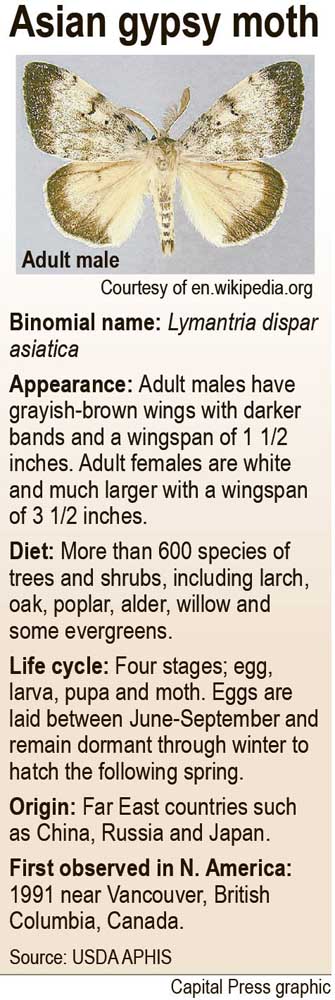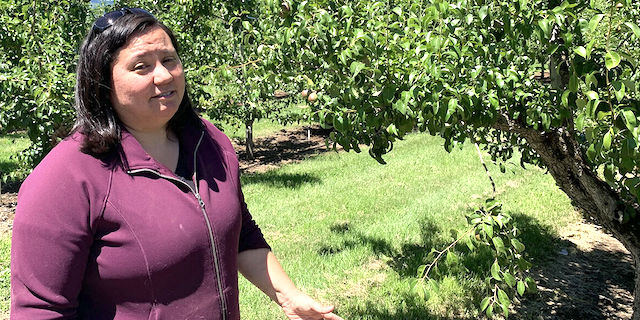WSDA to spray 639 acres for gypsy moths
Published 7:00 am Wednesday, December 9, 2020

- Gypsy moth spray campaign begins April 16 in Portland
A rural area in Cowlitz County, Wash., likely will be showered with an organic pesticide in the spring to kill gypsy moths emerging as caterpillars, according to the state Department of Agriculture.
Plans to spray 639 acres near Silver Lake, about 70 miles north of Portland, were triggered by the trapping in October of a single Asian gypsy moth.
Gypsy moths are an invasive insect that defoliate a wide variety of trees and plants. Asian gypsy moths are rarer and more mobile than European gypsy moths and are considered more of a danger.
The trapping of one Asian gypsy prompts the department to spray an area. As a matter of routine, the department will write an environmental assessment before finalizing plans.
Gypsy moths are well established in the eastern U.S. For the past 50 years, Western states have successfully eradicated emerging populations.
The state agriculture department’s annual campaign to trap gypsy moths this summer and fall was overshadowed by a new threat, Asian giant hornets.
Gypsy moths are tame by comparison. But if established, Asian gypsy moths would pose a major threat to the North American landscape, according to the USDA.
While female European gypsy moths can’t fly, female Asian gypsy moths can fly up to 25 miles, according to the USDA, allowing the species to spread more quickly.
Besides the one Asian gypsy moth trapped near Silver Lake, the agriculture department trapped eight European gypsy moths.
Six were trapped in Graham in Pierce County and two in Kenmore in King County. The department does not plan to spray those areas.
The moths trapped during the summer in Graham were in an area burned by a large brush fire in September, department spokeswoman Karla Salp said Tuesday.
“It’s possible whatever infestation was there was burned up,” she said. “It’ll be interesting to see what’s in there next year.”
The nine gypsy moths were the fewest trapped in Washington since a single gypsy moth was caught in 2012.
The department last spring sprayed 1,300 acres in two areas in Snohomish County in Western Washington. No gypsy moths were detected in those areas this summer and fall.
The department plans to spray Bacillus thuringiensis var kurstaki, an insecticide approved for organic farming.






